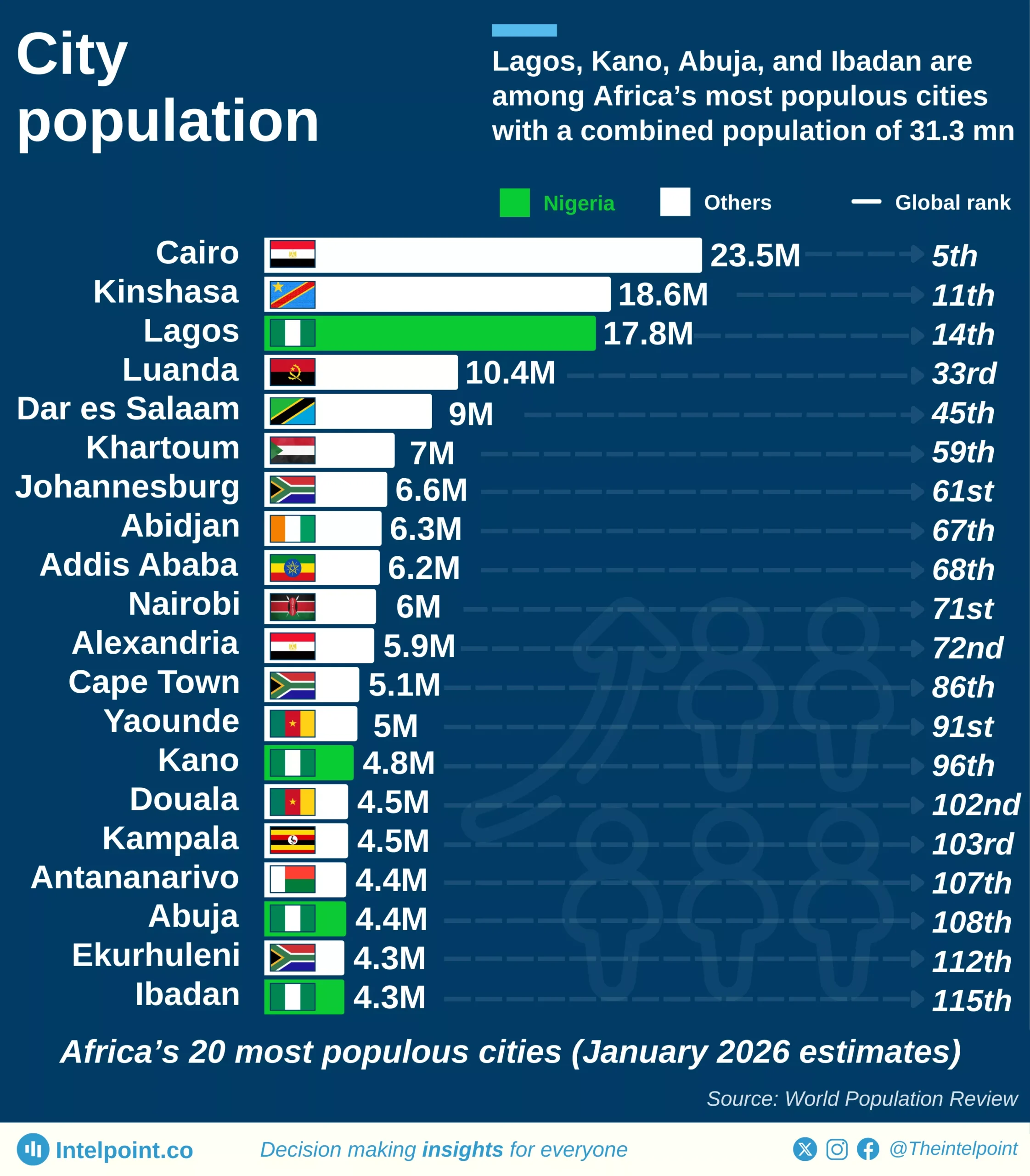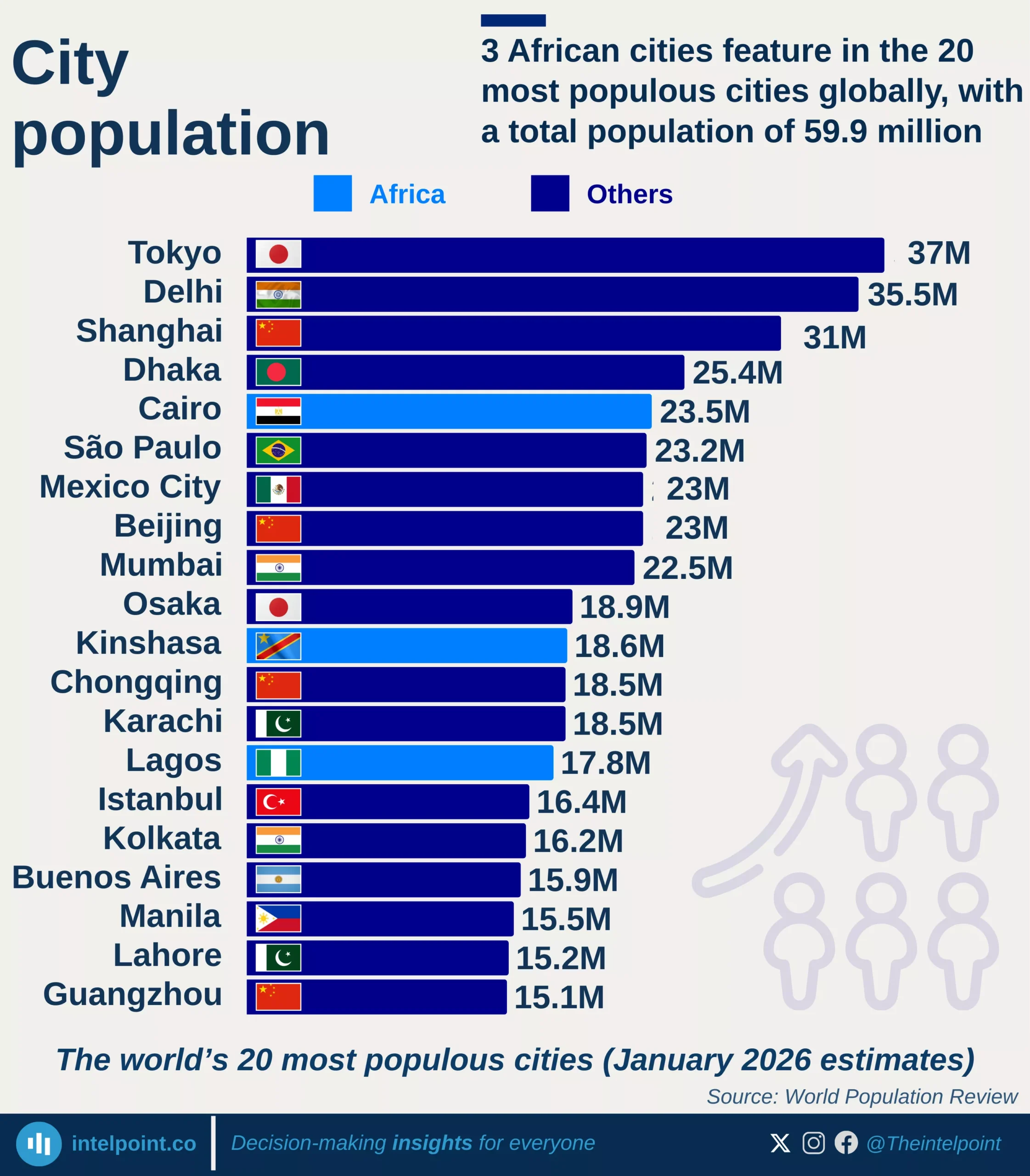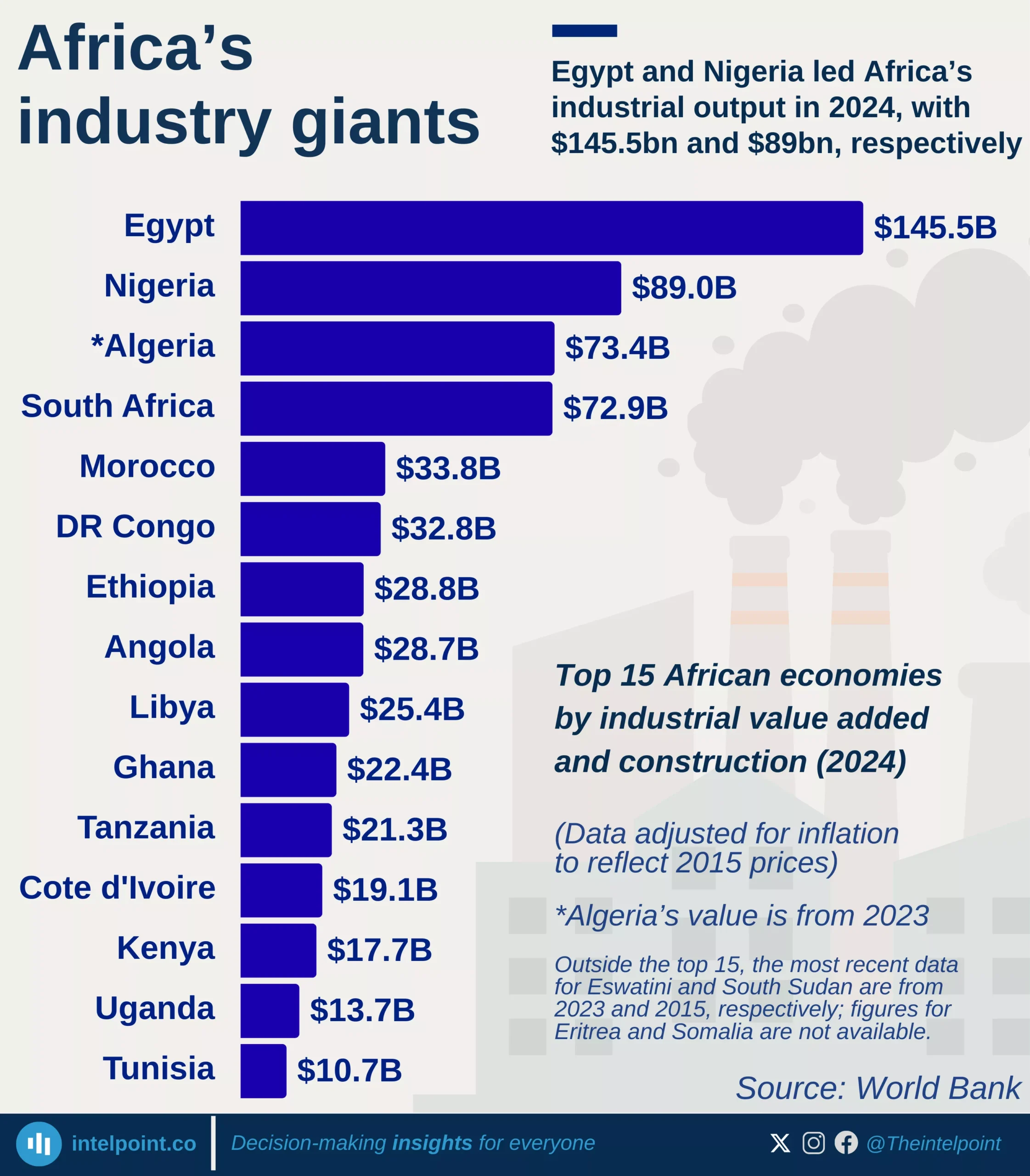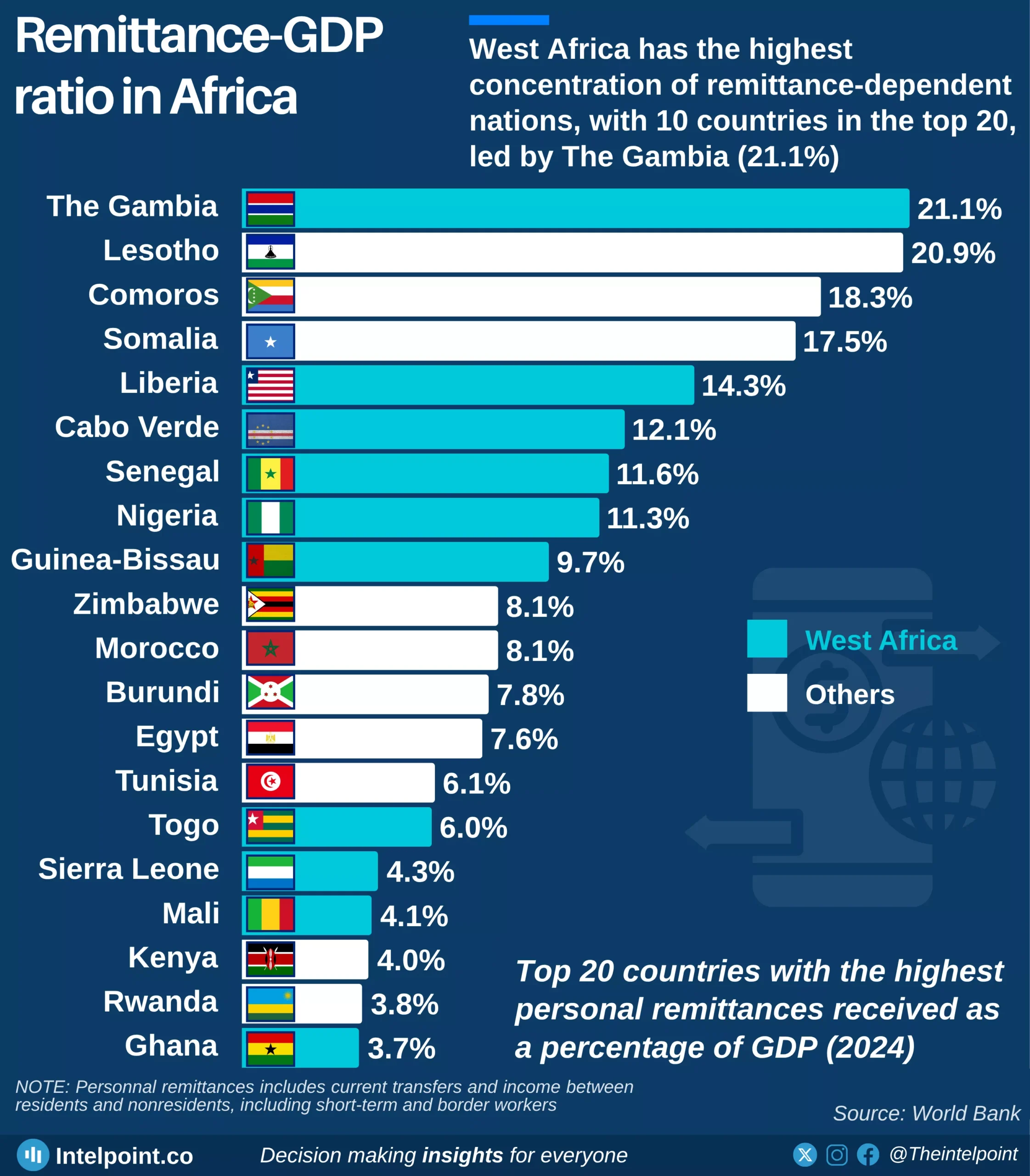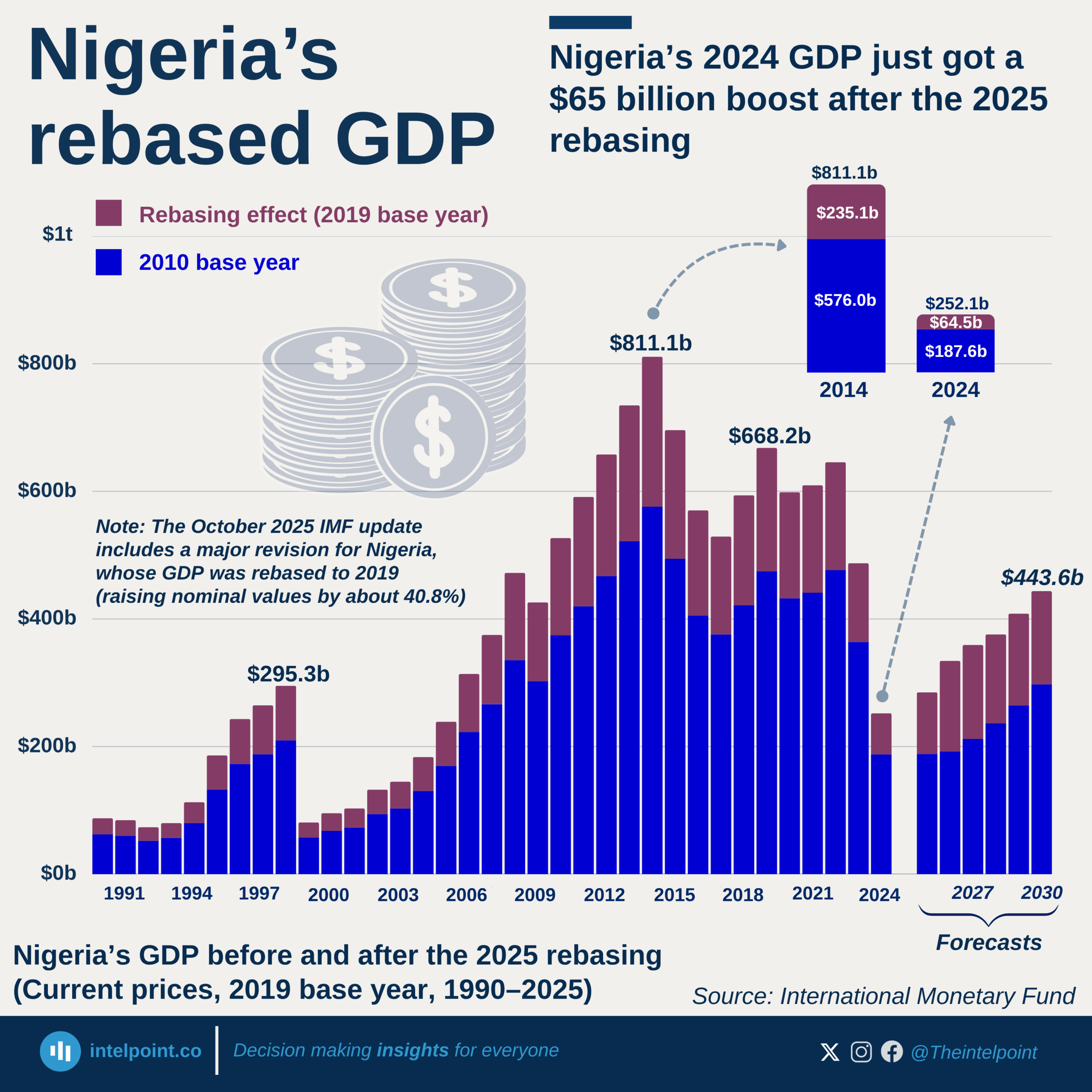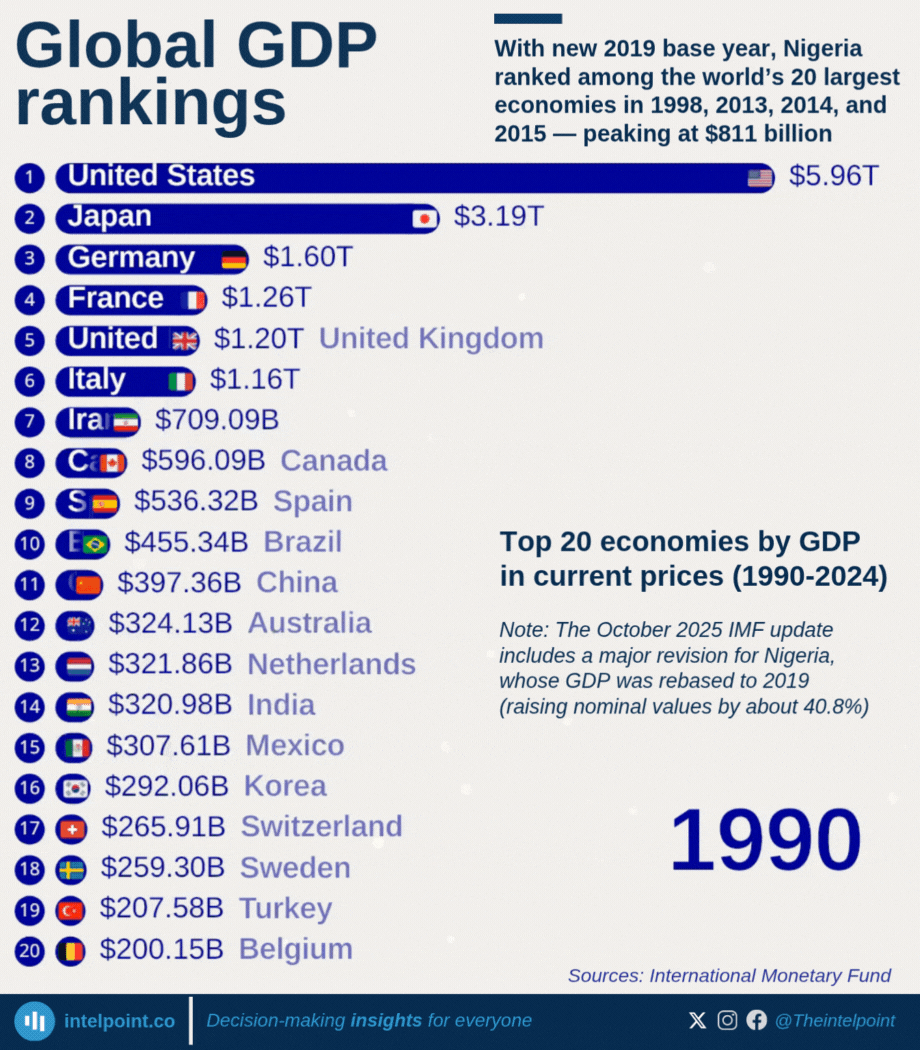Nigeria’s population growth has outpaced its economic performance. From 1960 to 2023, the population increased from 44.9 million to an estimated 223.8 million, putting immense pressure on resources.
The country's GDP peaked at $574.2 billion in 2014 but dropped to $362.8 billion in 2023.
